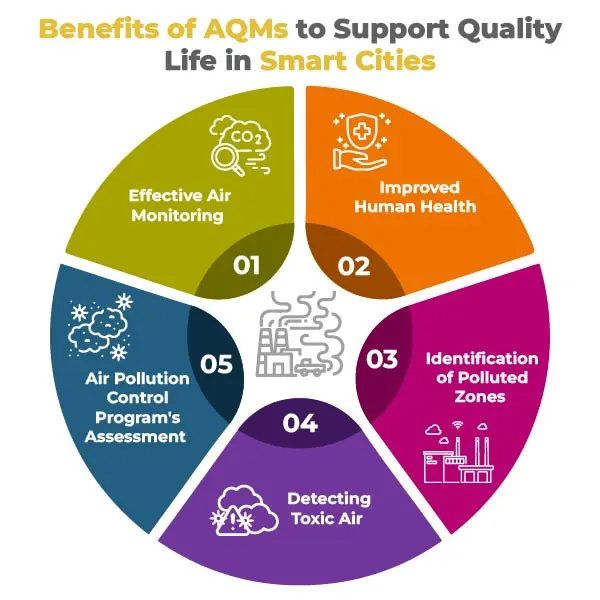
Breathing Easier: The Profound Clean Air Quality Benefit
Clean air quality is a cornerstone of a healthy living environment, offering numerous benefits for both physical and mental well-being. This article explores the significant advantages of clean air and the positive impact it can have on individuals and communities. From the reduction of health risks to fostering a better quality of life, the clean air quality benefit is indeed profound.
Understanding the Impact of Air Quality on Health
Air quality directly influences respiratory and cardiovascular health. Poor air quality, often characterized by high levels of pollutants, can exacerbate respiratory conditions such as asthma and contribute to the development of cardiovascular diseases. Clean air, on the other hand, reduces the risk of respiratory issues and supports overall cardiovascular health.
Pollution Reduction: A Vital Clean Air Contributor
Reducing pollution is a key factor in achieving clean air quality. Efforts to limit emissions from vehicles, industrial processes, and other sources contribute significantly to the cleanliness of the air we breathe. Implementing and enforcing regulations that target pollutant reduction play a crucial role in maintaining and improving air quality standards.
Enhanced Respiratory Function and Lung Health
Clean air promotes optimal respiratory function and lung health. Breathing in fresh, uncontaminated air allows the respiratory system to function efficiently, reducing the likelihood of respiratory ailments and improving overall lung capacity. Individuals in areas with clean air quality experience less strain on their respiratory systems, leading to enhanced well-being.
Boosted Immune System Functionality
Exposure to clean air has been linked to improved immune system functionality. Airborne pollutants can compromise the immune system’s ability to defend against infections and illnesses. Clean air, by contrast, helps the immune system operate at its full potential, ensuring better protection against pathogens and supporting overall health.
Mental Well-Being: The Psychological Clean Air Connection
Beyond physical health, clean air quality is intricately linked to mental well-being. Studies have shown that exposure to air pollution can contribute to stress, anxiety, and other mental health issues. Conversely, clean air has a positive impact on mood, cognitive function, and overall mental health, creating a conducive environment for well-balanced living.
Increased Productivity and Cognitive Performance
Clean air is a catalyst for increased productivity and cognitive performance. High-quality indoor and outdoor air positively influences concentration, alertness, and overall cognitive function. Workplaces and educational institutions benefit from clean air environments as they enhance the ability of individuals to focus and perform tasks efficiently.
Supporting Sustainable Urban Planning
The clean air quality benefit extends to urban planning and development. Sustainable urban planning practices, such as green spaces, efficient public transportation, and emission reduction initiatives, contribute to cleaner air in densely populated areas. Prioritizing clean air considerations in city planning promotes the health and well-being of urban populations.
Mitigating Environmental Impact and Climate Change
Efforts to improve air quality also contribute to mitigating environmental impact and addressing climate change. The reduction of pollutants that harm air quality often aligns with broader environmental sustainability goals. Clean air initiatives play a part in the global effort to combat climate change and create a more sustainable future.
Community Engagement for Clean Air Advocacy
Community engagement is crucial for advocating and achieving clean air quality. Individuals and communities can actively participate in initiatives that promote air quality improvement, such as tree planting, supporting green technologies, and advocating for policies that prioritize clean air. The collective effort of communities is instrumental in creating lasting positive change.
To explore more about the profound clean air quality benefit and its impact on health and well-being, visit Clean Air Quality Benefit. By understanding the advantages of clean air and actively participating in initiatives that promote air quality improvement, individuals can contribute to creating a healthier and more sustainable living environment.
